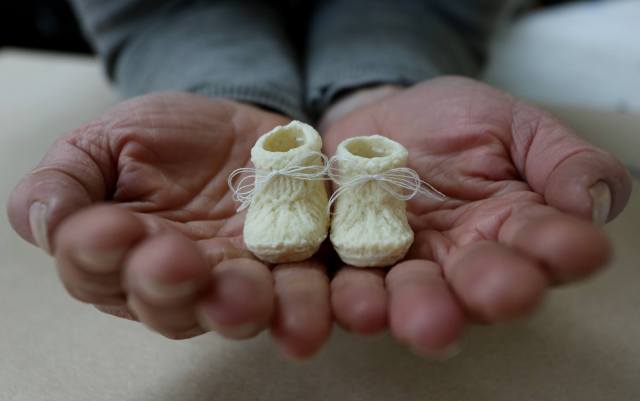Gareth Fuller/PA Archive/PA Images

As we move ever closer to the commonplace genetic engineering of humanity, sceptical voices make an appeal to diversity. If we can choose how our children turn out – both physically and intellectually – aren’t we in danger of losing something?
The counter-argument is that if the population becomes smarter, healthier and better looking, then what’s the problem? Very few people would choose to be thick, sick or ugly – so why wish these afflictions on others if they can be avoided?
Writing for Bloomberg, Tyler Cowan develops a deeper argument against genetic choice. Though of a broadly libertarian standpoint, he has profound doubts about the wisdom with which we’d use the coming technology:
“I don’t trust people to take so much control over the future of human nature.”
It’s not just things like propensity to disease that would be discarded or more trivial defects such as shortness of height or weakness of chin. Through genetic testing and abortion, we’re already eliminating people with Down’s Syndrome from entire populations as if they were without value – and that’s just the start of the ‘genetic cleansing’ heading our way.
Cowan’s focus is on personality types:
“If you could directly alter your kids’ genetic profile, what would you want? It’s hard to know how the social debate would turn out after years of back and forth, but I was dismayed to read one recent research paper by psychologists Rachel M. Latham and Sophie von Stumm. The descriptive title of that work, based on survey evidence, is ‘Mothers want extraversion over conscientiousness or intelligence for their children.’ Upon reflection, maybe that isn’t so surprising, because parents presumably want children who are fun to spend time with.”
Introverts might always be in the kitchen at parties, but, being thoughtful types, we do have our uses. Indeed, like Cowan, I think it’s possible you’ll miss us when we’re gone:
“Would a more extroverted human race be desirable, all things considered? I genuinely don’t know, but at the very least I am concerned. The current mix of human personalities and institutions is a delicate balance which, for all of its flaws, has allowed society to survive and progress. I’m not looking to make a big roll of the dice on this one.”
Given the choice, would every parent opt for an outgoing child? Perhaps not exclusively – but you can be sure that some of the more challenging personality traits would be all but eliminated. For instance, any trait labeled as ‘autistic’ would go out the window – so good luck recruiting the next generation of software engineers. As for tendencies that might be described as psychopathic or merely domineering, they’d be out too – and therefore the next generation of leaders.
Note that we’re not talking about a simple menu of genes that you can select or reject to produce your designer baby. Genetics is generally more complicated and inexact than that. Nevertheless, genetic engineering techniques will provide us with an ever increasing ability to shift the odds of a child turning out more one way than another. Given cultural preferences and prejudices this will bring about big shifts across whole societies – and not just biologically:
“Parents’ choices, and their eventual public unveiling, may have harmful effects on social norms. What if it becomes known that a high percentage of parents opted for children with paler skin or straighter hair or a greater chance of being heterosexual? That knowledge could boost stigmas and social divisions, even with stringent anti-discrimination legislation. The parental choices could end up being seen as, in essence, the final court of public opinion.”
Will we legislate to protect some aspects of human diversity, but not others? Moreover, would such legislation be enforceable? Perhaps not:
“The techniques will be available in many different countries, and over time the more lax standards will have greater influence, if only through ‘genetic engineering tourism’…
“In China, these techniques are already about one-third as cheap as in the U.S….”
Some see designer babies as a matter of competitive necessity – in that countries that engineer their way to, say, higher average IQ scores, will overwhelm those that don’t. However, that is to assume that genetically selective societies won’t breed themselves into crippling uniformity.










Join the discussion
Join like minded readers that support our journalism by becoming a paid subscriber
To join the discussion in the comments, become a paid subscriber.
Join like minded readers that support our journalism, read unlimited articles and enjoy other subscriber-only benefits.
Subscribe